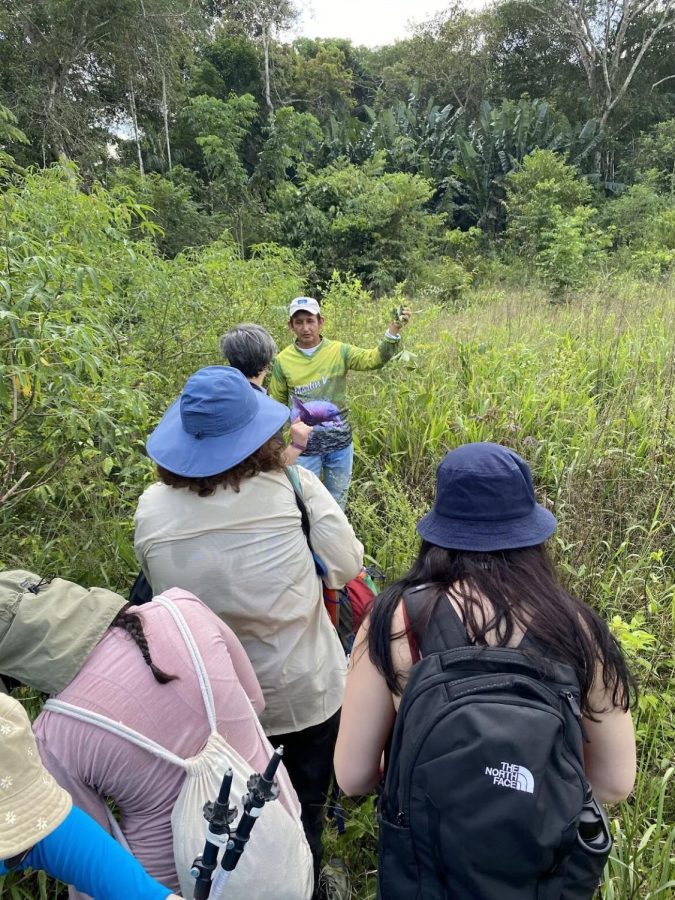Students return from faculty-led program to the Amazon, Colombia
February 20, 2023
Kent State University offers a variety of education abroad programs to students who wish to experience learning in an international environment.
Many students opt to participate in a semester-long program, which involves maintaining a 12-credit-hour minimum during their time abroad. Faculty-led programs are an alternative option and allow students to focus on one specific subject for up to three weeks.
Over winter break students embarked on the Peacebuilding in Colombia Collaborative faculty-led program, which was funded by the 10,000 Strong in the Americas grant.
Martin Walschburger Hurtado, a junior biology major, was one of the students who joined the program to study peace and conflict. Walschburger Hurtado typically studies biology, so he found value in the perspective that came with the trip.
The program included five days spent in the Amazon jungle and 10 days in Colombia, with a focus on reconciliation between people and nature after the Colombian conflict.
“I kind of knew what to expect,” Walschburger Hurtado said. “But more of only the physical aspect, not the emotional and historical parts. I wasn’t expecting everything we went through, such as really getting to know both my group and the people we interacted with.”
Walschburger Hurtado understands the hesitations some students may have about going into an education abroad program, but he stresses the importance of not letting fear impact someone’s decision.
“Obviously it can be a little scary,” he said. “But if it’s something you find really interesting or fun, then you should go for it.”
Sara Koopman, one of the two faculty leaders in the program, has found immense benefits for students participating in faculty-led programs.
“Students learn a lot about themselves and how they operate in unusual situations,” she said. “They learn that they are capable of doing a lot more than they thought they were.”
Koopman believes abroad programs allow for more dialogue, instead of one-way communication in a formal classroom setting. She said students learn a lot from their classmates through the experience.
Kayla Gleason is a reporter. Contact her at [email protected].

























